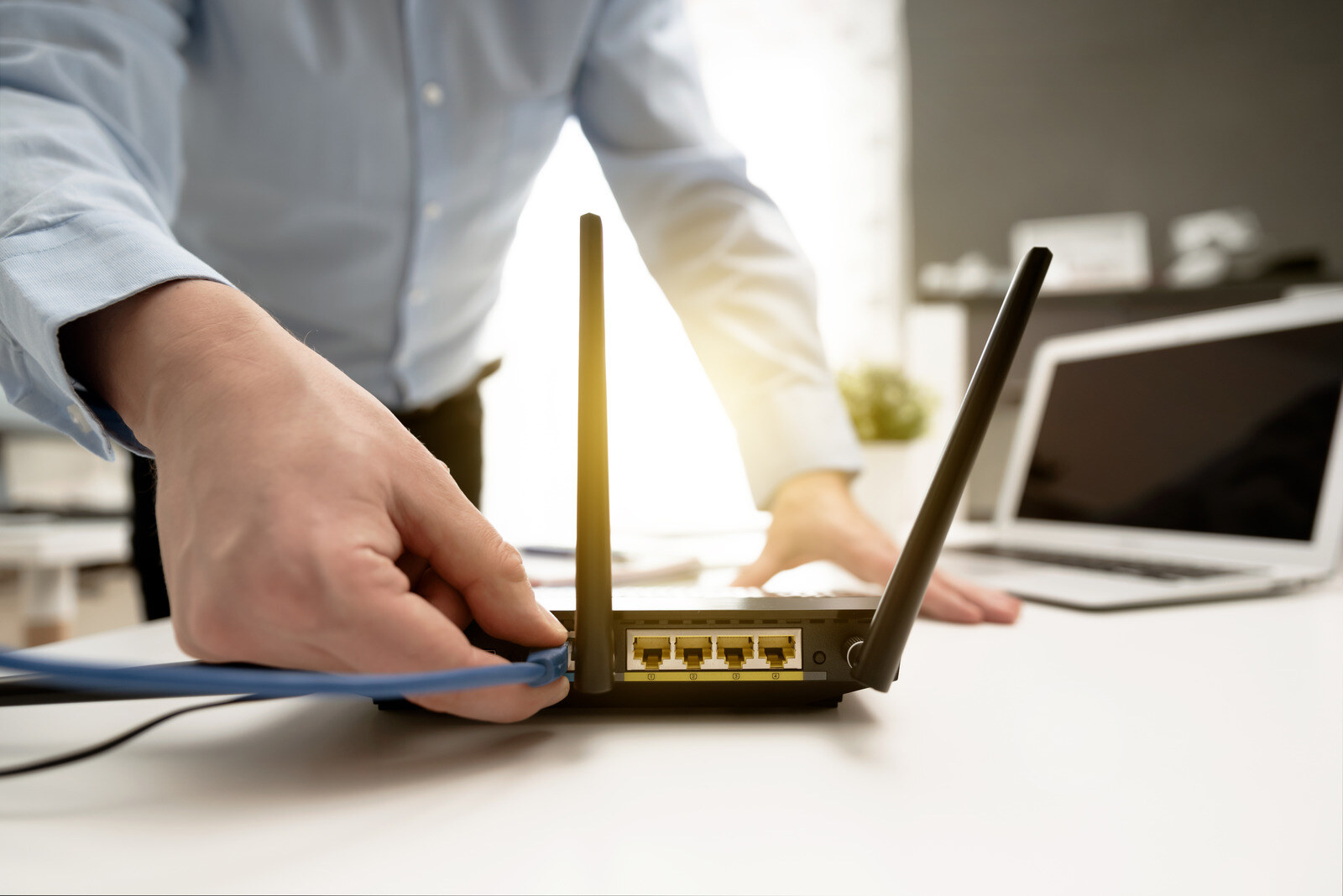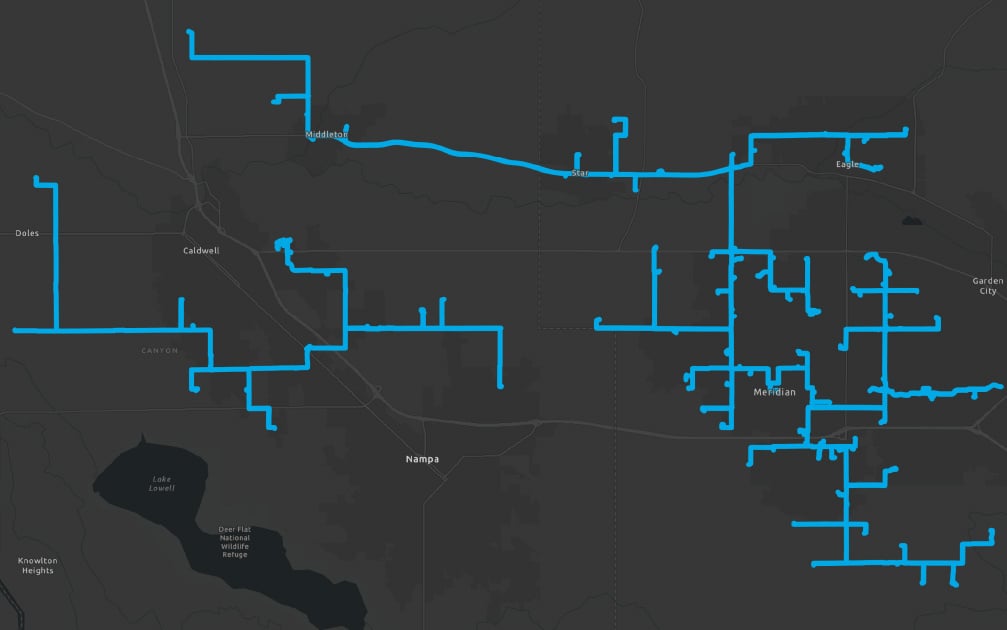We all want our business data to be safe and secure. While no internet connection is 100% hack-proof, fiber's inherent security features provide more protection against potential cyber threats than traditional internet options like copper or cable. This extra security is especially important now, as 72% of respondents to the World Economic Forum's 2025 Global Cybersecurity Outlook survey reported a recent rise in cyber risks.1
High-speed, uninterrupted connectivity matters for every business, but the physical infrastructure you choose plays a crucial role in protecting your data. Let's explore why fiber networks offer better security than traditional connectivity solutions and what that means for your business.
How Do Fiber Optic Networks Work?
To understand why fiber optic security is stronger than traditional networks, you should first know how fiber works.
Rather than transmitting data using electrical signals like copper-based connections, fiber networks send your data as light pulses through thin glass or plastic cables. This unique transmission method makes fiber naturally resistant to many common cybersecurity risks, including electromagnetic interference (EMI), signal tapping, and signal loss over long distances.

4 Ways Fiber Optic Security Is Superior to Traditional Networks
The physical properties of fiber optic cables create several security benefits that set them apart from traditional networks, such as:
1. Protection Against Signal Tapping
One of the biggest weaknesses of copper-based networks is their vulnerability to electromagnetic eavesdropping. Since copper cables transmit electrical signals, hackers can use specialized equipment to tap into the line and intercept data without physically cutting the cable.
Fiber networks eliminate this risk. Transmitting data using light rather than electricity means that any attempt to physically tap into a fiber cable disrupts the signal immediately. This disruption alerts network administrators or makes the breach easily detectable, helping protect sensitive data in industries like healthcare, finance, and government.
2. Resistance to Electromagnetic Interference
EMI poses real problems for copper networks. Power lines, radio waves, and industrial equipment can all interfere with copper cables, degrading signal quality and creating security vulnerabilities in data transmission.
Fiber optic cables simply don't have this problem. Light signals aren't affected by EMI, which means fiber networks maintain consistent performance even in high-interference environments. This makes fiber a highly reliable choice for businesses in industrial areas, busy urban centers, or locations with mission-critical operations.
3. Reliable Data Transmission
Exactly how reliable is fiber optic internet? It all depends on its ability to maintain data integrity over long distances.
Copper connections degrade the further signals travel, leading to packet loss, higher latency, and slower performance. Fiber optic networks can send data over hundreds of miles without signal degradation, which means your business maintains fast, consistent connectivity regardless of location.

4. Low Risk of Physical Tampering
Fiber optic networks are less prone to physical tampering than traditional internet connections. Unlike copper cables, which can be easily accessed from junction boxes or underground vaults, fiber optic cables are typically buried deeper and reinforced with protective layers.
Making changes to fiber networks also requires specialized equipment and expertise in fusion splicing or connectorization, making unauthorized access much more difficult.
How Does Fiber Security Benefit Businesses?
Let’s explore how these security features translate into advantages for your business:
Stronger Data Protection
In a 2024 survey of global business leaders, nearly half of the respondents cited data protection as their top cybersecurity investment priority for 2025.2 Many fiber services include built-in encryption to protect your data from source to destination. Fiber's natural resistance to signal interception also adds protection against data breaches, ransomware, and unauthorized access.
Secure Cloud Connectivity
Cloud services have become essential for storage, collaboration, and remote work, with over 90% of enterprises planning to operate in multi-cloud environments by the end of 2025.3 Fiber optic networks provide the low-latency, high-bandwidth connections needed to safely transmit sensitive data to cloud platforms – without performance slowdowns.

Additionally, fiber’s dedicated connections – such as wavelength services or private fiber networks – reduce exposure to shared infrastructure risks. Your mission-critical data is kept separate from shared environments, so it’s always isolated from external threats.
Protection Against Cyber Threats
Businesses are facing increasing risks from DDoS attacks, malware, and network intrusions. While firewalls and security protocols play major roles in preventing cyber threats, your network’s physical security is just as important.
Fiber networks offer an inherently secure infrastructure that makes it harder for cybercriminals to access or manipulate your data. When combined with modern cybersecurity measures like intrusion detection systems, VPN encryption, and endpoint security, fiber creates a robust defense against emerging threats.
Tips for Choosing a Secure Internet Solution
Choosing the right network infrastructure is a must for businesses handling sensitive customer information, financial transactions, or proprietary data. Standard internet connections might offer adequate speeds, but they often lack the security and reliability needed for enterprise operations.
Consider these factors when evaluating your options:

For organizations that need high-performance and future-proof connectivity, fiber security typically provides the best solution.
Safeguard Your Business With Fatbeam Fiber
Your business’s network infrastructure is the foundation of your digital security. Just as you wouldn't build a house on shaky ground, you shouldn't build your business on a vulnerable network. Fiber optic networks offer a solid foundation, so you can rest easy knowing your network is built on technology that's naturally resistant to many common security risks.
At Fatbeam, we built our fiber network for security and reliability from the ground up. Unlike other providers, we keep your traffic on our high-capacity backbone with zero oversubscription, ensuring your secure connection stays fast and dependable even during peak usage times. Plus, our cyber security add-ons offer even more comprehensive protection for your sensitive data, including:
- Fatbeam Safeguard: Gives you scalable, managed firewall security that eliminates hardware and licensing costs.
- Fatbeam Shield: Powered by Cisco Umbrella, this cloud-based DNS layer secures every device on your network from emerging threats
- DDoS Mitigation: Provides 24/7 proactive monitoring and protection against devastating denial-of-service attacks.
Ready to protect your business with fiber optic internet? Contact us today to explore our solutions.
Sources:


